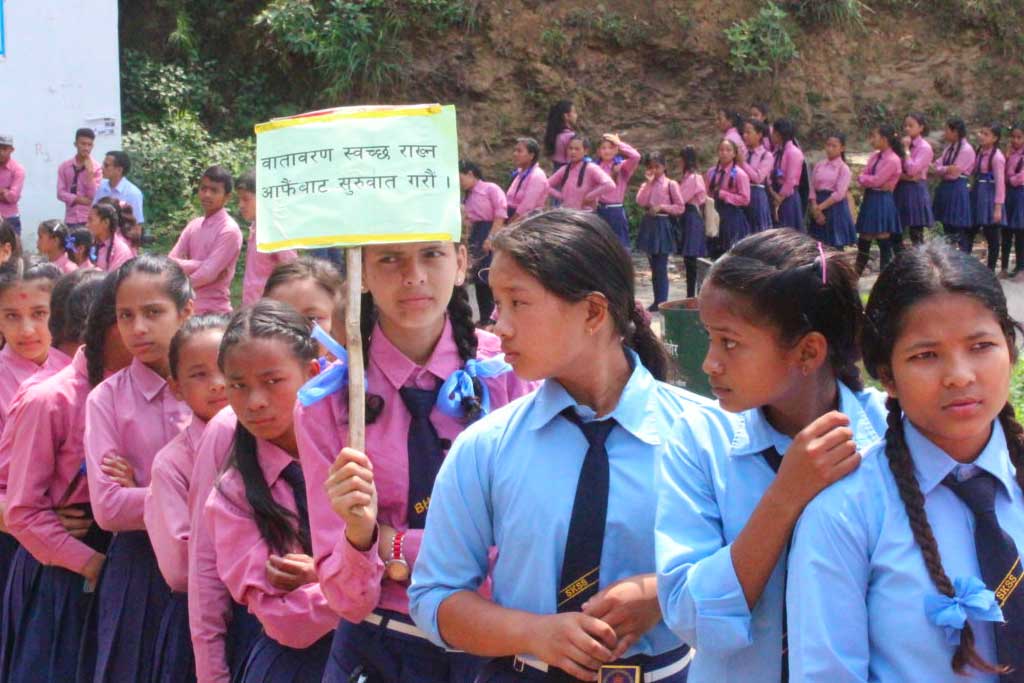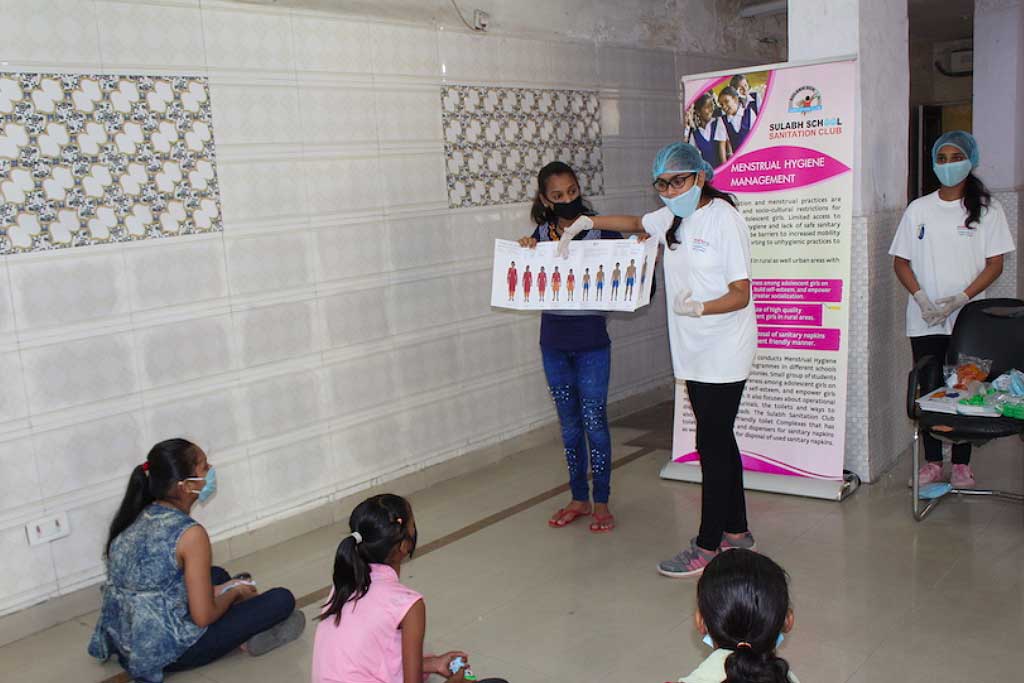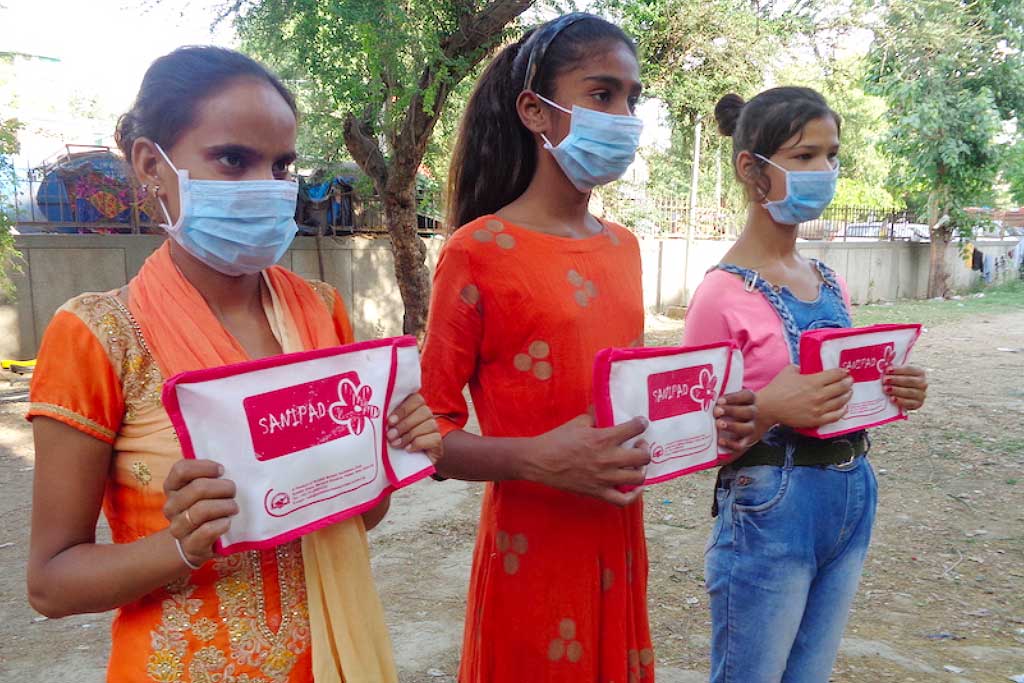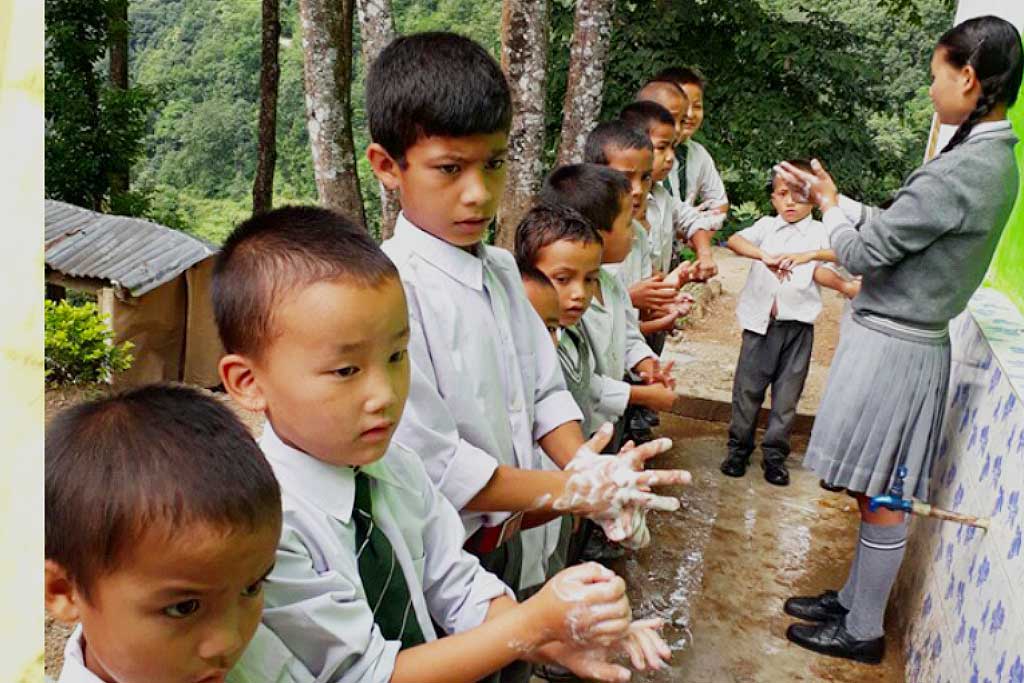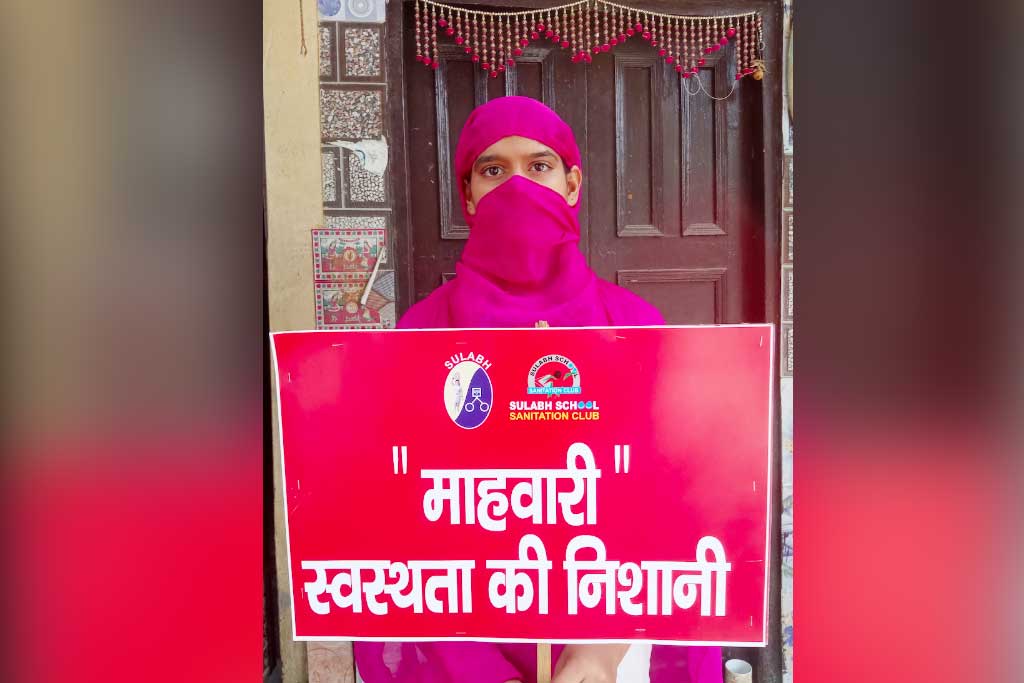Child Participation is key. Various means of involving the young people are used. Children need to get involved in the issues that concern them because they are the experts in this. Schools are the powerful channels for communicating hygiene messages to the households and communities. Sulabh School Sanitation Club is one of the advocacy programme undertaken with the inspiring leadership of Dr. Bindeshwar Pathak. The programme aims to raise the profile of sanitation in schools, which is our top priority. It is a child-centered, global movement of children and young people whose goal is to bring about positive social transformation in India by empowering children through hygiene education.
It is a movement and operates through groups of children and young people in schools and communities with girls taking the lead; boys acting as strategic allies while the adults – women and men – provide the wisdom of age. It is these groups that subsequently make the decision on how to interact with and help one another at the community, district, national, regional, and international levels in co-operation with appropriate government, civil society, and donor organisations.
Sulabh School Sanitation Club volunteers selected from schools, often form vulnerable groups themselves, who, after suitable training, provide a sustainable input to not only preparing and responding to disasters and conflicts but also acting as a developmental driving force in longer-term water and sanitation programming.
The School Sanitation and Hygiene Education (SSHE) in India has been implemented by Sulabh School Sanitation Club in several states like Sikkim, Nagaland, Meghalaya, West Bengal, Odisha, Delhi and Manipur. The Sanitation Club has conducted various training programmes on issues related to sanitation in schools, health and hygiene in several schools of India as well as in Nepal and Bhutan.
The Club has even conducted various interactive workshops on Hygiene education in many districts of Nagaland, Sikkim, Manipur and Assam. Training on basic safe hygienic practices, especially to adolescent girls is also provided by the school sanitation club. The club has also been successful in setting up a Sanitary Napkin Facilitation Centre focusing on Girls hygiene management in New Delhi. The Club conducts various interactive and participatory programmes for school children of Government schools as well to address the unhealthy environment and for proper monitoring and evaluation.
Through the School Health and Hygiene program, Sulabh School Sanitation Club has gained valuable insight into how best to mobilize, inform, and empower schools to improve the health and the education status of their secondary school-aged children. We expect most behavior change activities to continue, driven primarily by schools, communities, and government, who are committed to the program.
Sulabh School Sanitation Club is also working with other agencies to promote water and sanitation through their country-wide School Sanitation and Hygiene Education program implemented in conjunction with the government.
In the long term, a vigorous effort and campaign supported by government agencies is required to ensure that health and hygiene are an integral part of the school curriculum and sufficient time is allocated to teaching these topics in schools.


